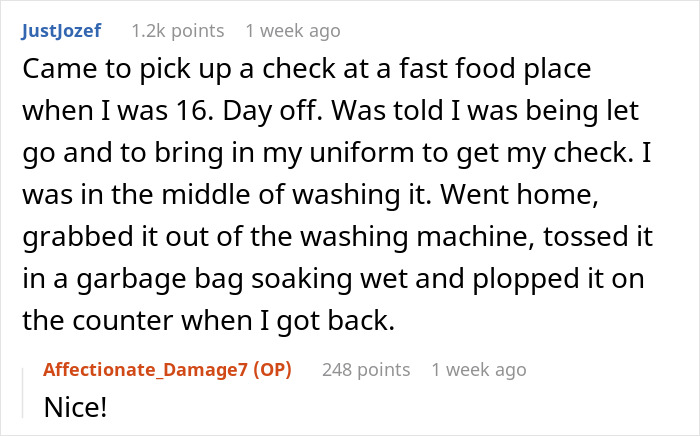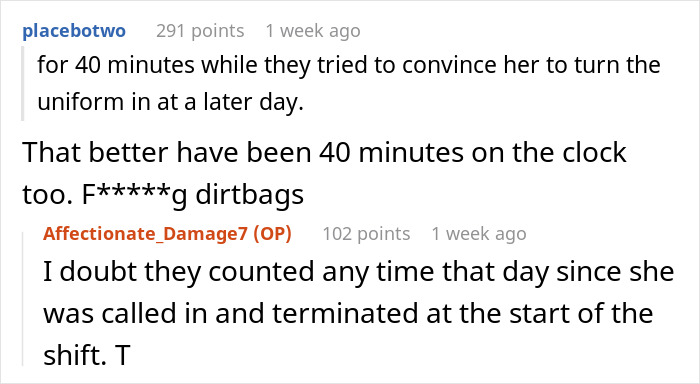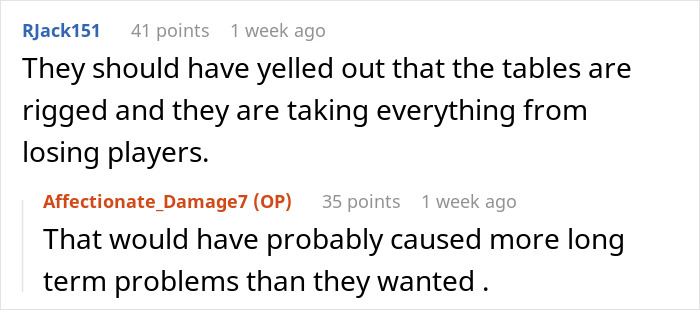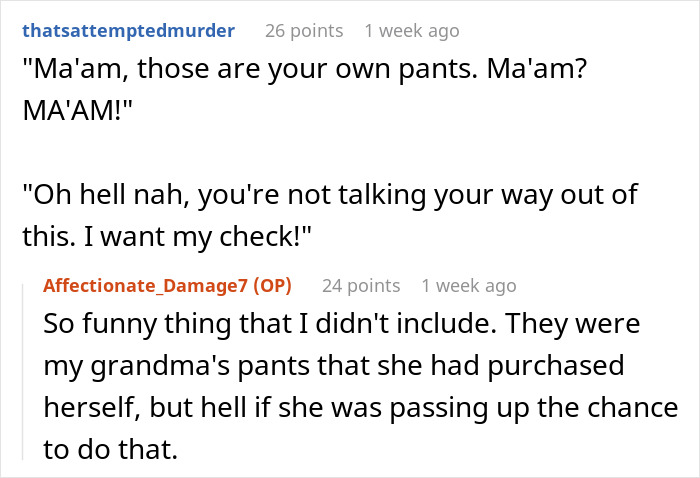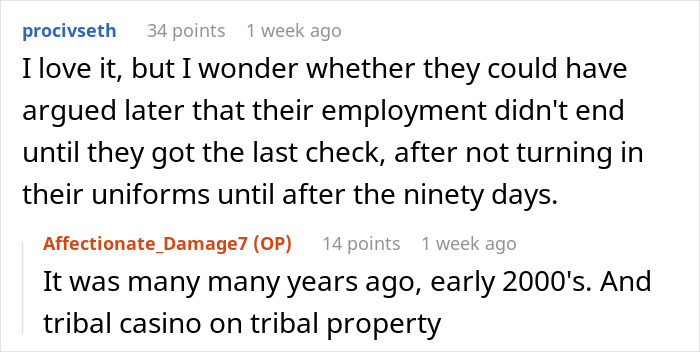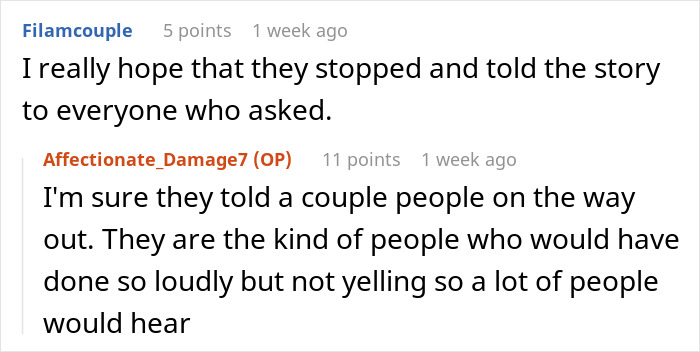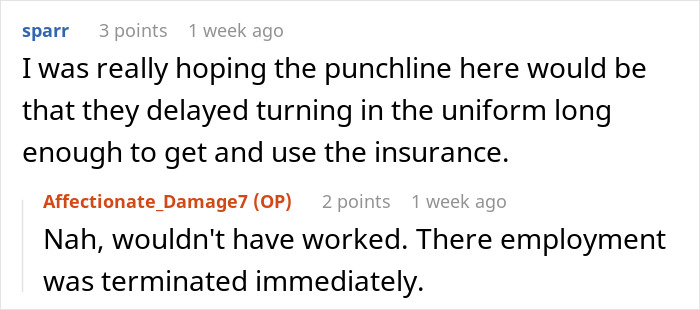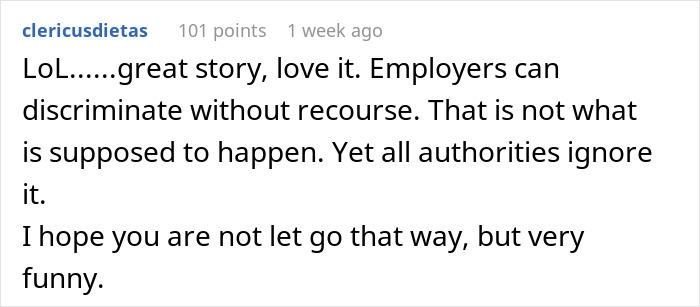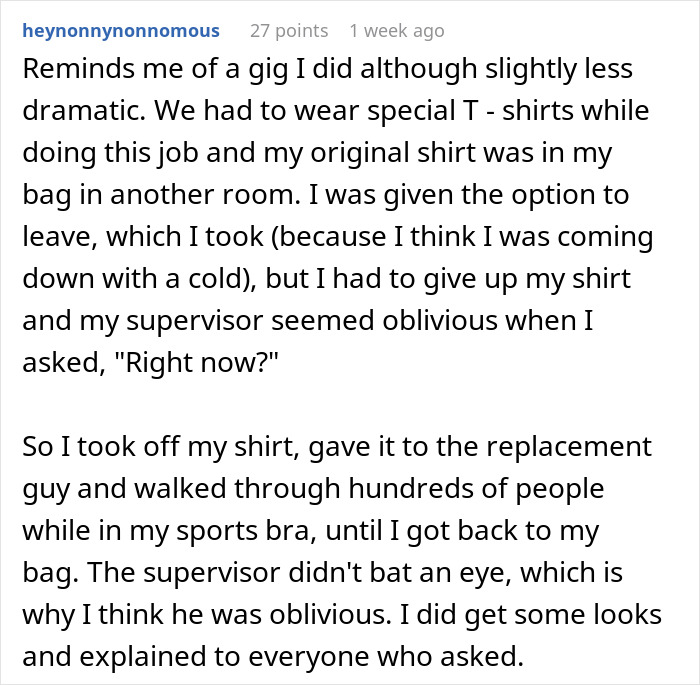Getting fired sucks. I’m sure many people who were fired at least once in their lives have fantasized about sticking it to their boss as they’re leaving. Many of us have to make do with these fantasies, as we seldom get to have the last laugh. But not these women.
This mother-daughter duo took the opportunity to let their management know how they felt just as they were exiting their workplace – a casino. The official policy demanded all employees return their uniforms to get their final checks. Deciding they wanted their check there and then, the two women stripped down to their underwear and strutted out of the casino with their checks in hand. As one person in the comments pointed out, “Not all heroes wear clothes.”
Two women worked for a casino that decided to lay off workers after a 90-day trial period so they wouldn’t have to cover their insurance

Image credits: Pavel Danilyuk / pexels (not the actual photo)
When the time came to get their last check and return their uniforms, they chose to maliciously comply and quit in style
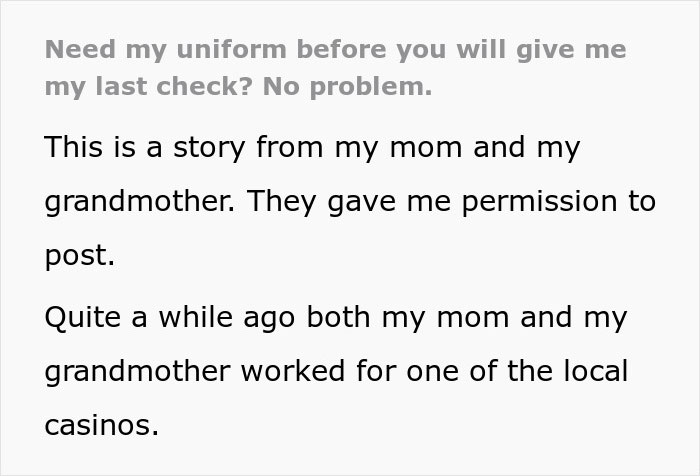
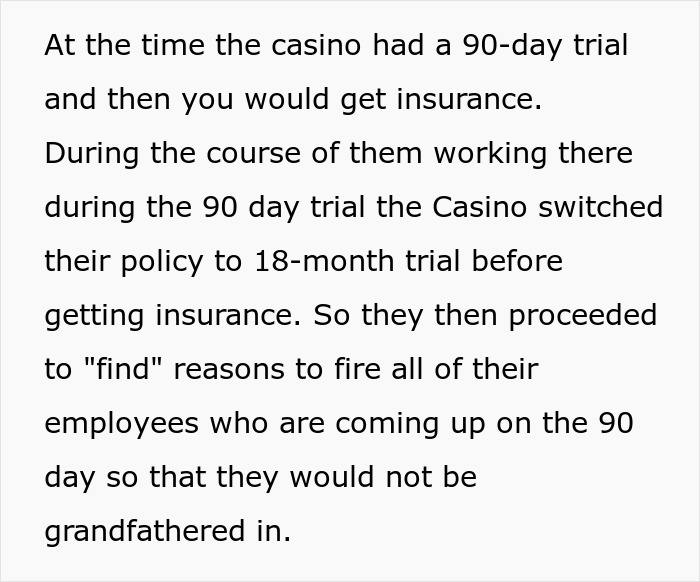
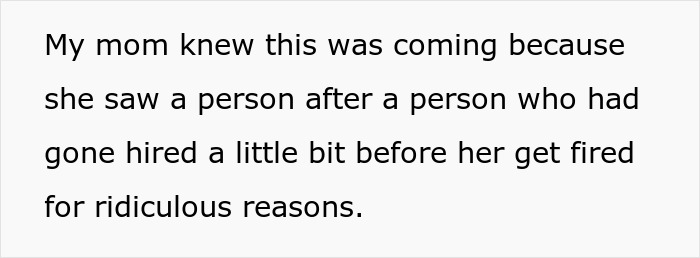
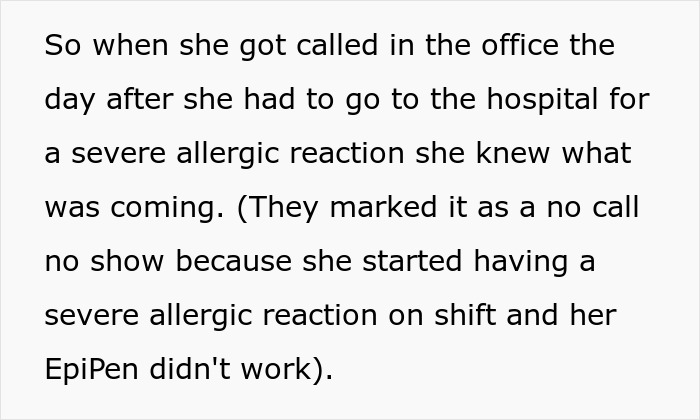
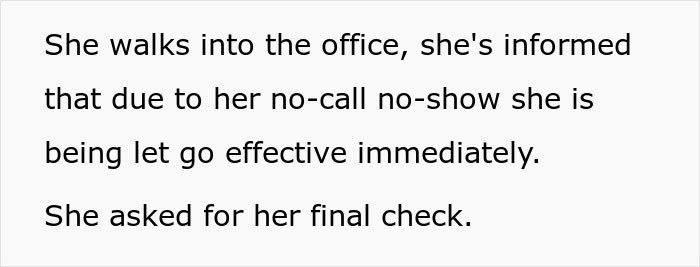
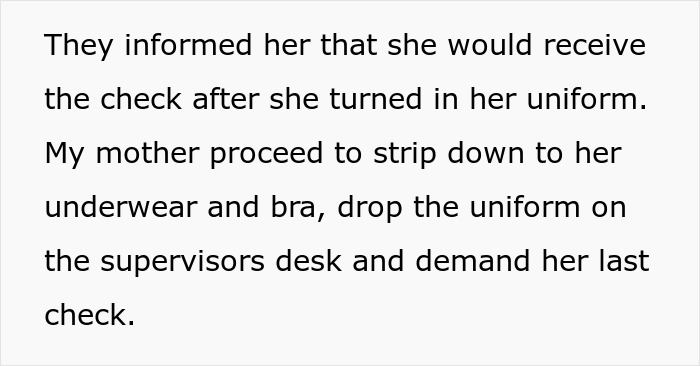


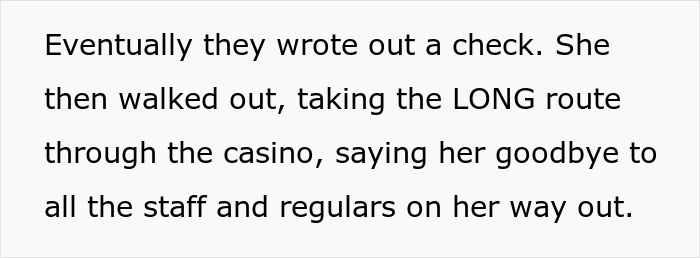

Image credits: FabrikaPhoto / envatoelements (not the actual photo)
An employer withholding the final paycheck might be illegal in some cases

Image credits: August de Richelieu / pexels (not the actual photo)
The mother-daughter duo in this story certainly handled their lay-off with style. But was the casino’s demand to return the uniforms to get final paychecks lawful? The Society for Human Resource Management writes that an employer cannot actually do that.
They claim that withholding pay from a fired employee would be unlawful, as they should receive their final salary on the day they regularly do. “The Fair Labor Standards Act (FLSA) mandates that wages are due on the next regular payday for the covered pay period, and several states have clear provisions when an employee must receive payment upon termination,” the association claims. “There are no exceptions related to unreturned equipment, therefore pay cannot be withheld past these requirements.”
If an employee doesn’t return their uniform (or any other equipment that belongs to the employer) in time, the employer might deduct the value of that item from the employee’s final paycheck. And that depends heavily on the situation and state wage deduction laws.
However, the U.S. Department of Labor advises employers not to do this if the employee is exempt from minimum wage and overtime pay requirements. “It is our opinion that such deductions or reimbursements would violate the salary basis requirements of FLSA,” they write in their opinion letter FLSA2006-7.
Depending on state laws, some employers might be able to withhold pay if such a condition is stated in the employment contract. In cases where the company property is more valuable than a uniform (e.g., computer, vehicle), the employer might choose to file a lawsuit and get it back that way.
Many employers abuse the trial period and use employees as disposable

Image credits: Nicola Barts / pexels (not the actual photo)
In theory, a trial period (90 days, in this case) is there so the employer and the employee can see if it’s the right fit. Usually, the probation period is from 3 to 6 months after an employee starts working. These 90 days or more are usually a trial run so the company can see how the worker fits in with their colleagues and supervisors and whether they will be able to do the job long-term.
In the U.S., the usual practice is that after the trial period, the employee gets their health insurance and 401k plan. There are other protections that workers get even before their trial run ends. The law protects employees from harassment and discrimination, meaning that an employee can’t fire a worker because of their sex, gender, religion, or race.
Unfortunately, what the employer in this story did isn’t illegal per se — just unethical. The practice of firing people before their trial period ends is, sadly, a practice that some employers abuse. New Zealand’s Ministry of Business, Innovation, and Employment reports that thousands of people get fired as employers take advantage of unfair trial periods.
The president of the Council of Trade Unions in NZ, Richard Wagstaff, calls for this practice to end. He claims that companies that do this view their workers as disposable. “That’s not how to treat people. Good employers don’t tend to use the trial period anyway,” he told NZ Herald.
“We think it’s the unscrupulous employers who abuse the trials. The research results are quite alarming — so many people are being sacked within their trial period without cause or a process of natural justice.”
Human resource consulting agency JSR Services writes that, unfortunately, employers can dismiss employees before or during their probation period for any reason. However, there’s a catch: if they violate a law in doing so, there might be grounds for a lawsuit. An employee might sue if they feel their termination was due to discrimination or an act of harassment.
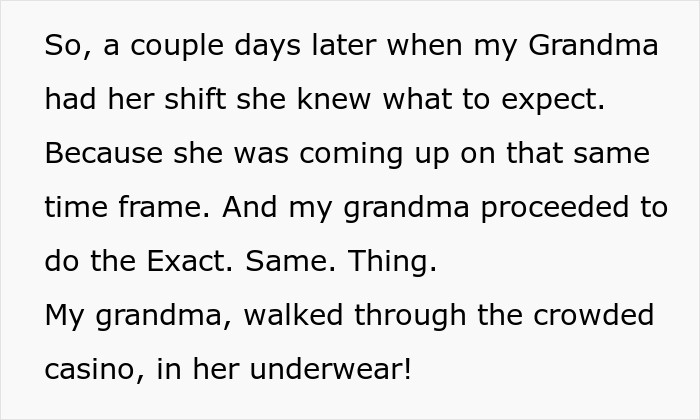
Image credits: Affectionate_Damage7
People applauded the mother-daughter duo for sticking it to the management

